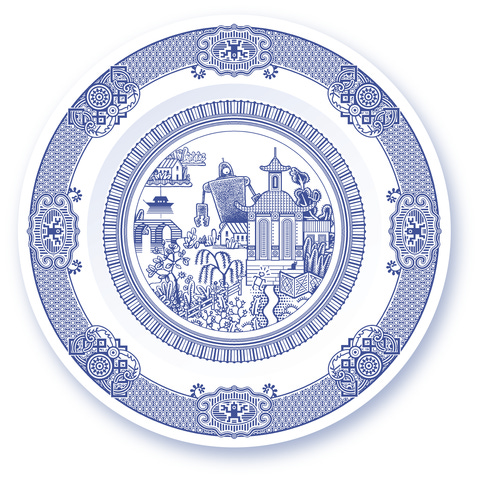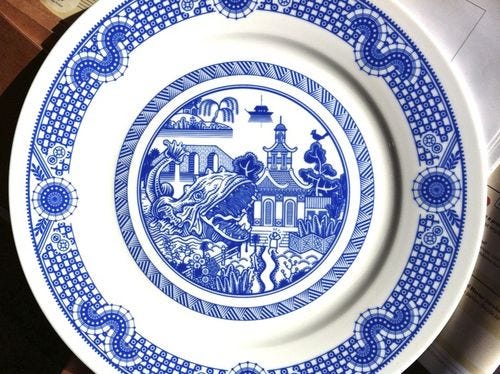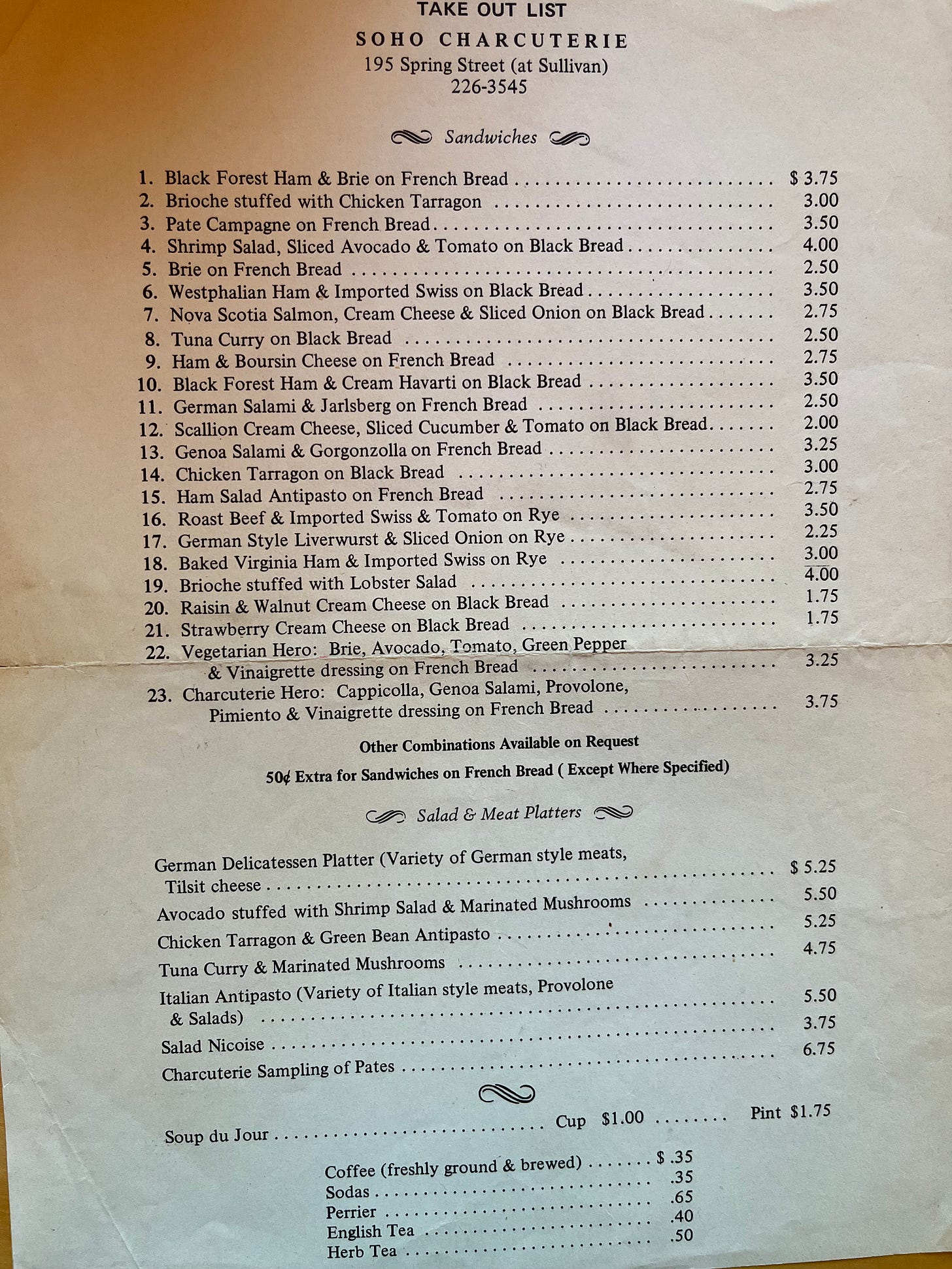I just came upon this piece I wrote in 2010, and it strikes me as particularly relevant at this moment.
"Given the situation in Haiti," someone wrote me yesterday, "maybe you should stop writing about all the great food you're eating." I've been thinking about that, a lot. And it strikes me that it's a spurious argument, as dubious as the one that Caitlin Flanagan is using to excoriate Alice Waters for her Edible Schoolyard Project in this article in The Atlantic.
The Flanagan argument is absurd on so many levels it's hard to even know where to begin. But following her logic no one would ever teach children anything but the three r's; there would be no art, no music, no physical education. Her idea, that teaching children how to grow food (and in the process allowing them to pick up good eating habits), deprives children of their right to learn literature, mathematics and philosophy is nonsense; learning is not an either/or proposition. It also ignores the reason that Alice came up with the idea of Edible Schools in the first place: eating is learned behavior, and allowing young people to experience the joy of fresh produce can change their lives forever.
Flanagan, however, likens working in the garden to stoop labor, which is a bit like comparing cooking dinner for your family to working at a fast food stand. Her article denigrates everyone who works with his hands. And although she begins by saying that no Latino would want his child working in a garden, she has the audacity to think she knows what people she has never spoken to are thinking. At the very least, she might have asked.
The man who wants me to stop writing about food until the crisis in Haiti s over is, of course, on much more solid ground. But it reminds me a bit of my grandparents: when their youngest daughter died at the age of 17 they stopped celebrating birthdays and holidays. If she couldn't be there to join the fun, there would be no more fun. That's ridiculous. And the opposite of life-affirming.
We all have a moral obligation to do what we can to help the Haitians during this terrible time. But talking about it doesn't help; we need to take concrete action. And once again, it's not an either/or situation. There will always be trouble - war, famine, earthquake, illness - somewhere in the world. We should not close our eyes or our minds to them. We should help in all the ways we can. But in times of trouble- especially in times of trouble - it is important to celebrate life. We need to remind ourselves - and others - that it is good to be alive. If only as a promise that better times are coming.
Since we seem to be in crisis mode…..
A few years ago, when we were trying to come up with jacket ideas for my novel Delicious!, my first thought was to do some kind of mad Blue Willow plate with images of New York City. The designers at Random House did half a dozen drawings, but somehow none of them was right.
I've always loved Blue Willow plates. This is probably because one of my favorite books as a child was Blue Willow, which has been described as “The Grapes of Wrath for children”. (If you don't know the book, it's worth looking up. A classic, and really remarkable for its time.)
That's probably why I was so intrigued when I stumbled upon Calamityware.
The artist, Don Moyer, spoofs Blue Willow plates by adding hilariously incongruous details. This giant robot plate was an early favorite.
I’m also very fond of this giant fish plate.
The business, which began as a Kickstarter, has been going strong for almost ten years, and they now have dozens of delightful variations.
I promised more books…
It’s embarrassing: every day I think of another book that should have been on my original list. I could probably keep doing this forever, but here are a few more food books that matter to me.
The Jemima Code: Two Centuries of African American Cookbooks. Toni Tipton-Martin has the most amazing cookbook collection. Here she presents the books in chronological order and virtually rewrites the history of Black cooks in America.
The Third Plate. I think Dan Barber has the most interesting food mind of anyone writing - or cooking - today. Essential reading.
Our Lady of Perpetual Hunger. Lisa Donovan takes on the male-dominated kitchen - and triumphs. Her bad-ass memoir is right up there with Blood, Bones and Butter.
Hungry. Jeff Gordinier is an incisive interviewer and beautiful writer. In this book he takes you on the road with Rene Redzepi, leading you to a new understanding of modern restaurant culture.
Everything is Under Control. In beautiful prose Phyllis Grant (poet and granddaughter of the painter Richard Diebenkorn), reimagines the memoir. And the recipes are fantastic.
What’s Good? Peter Hoffman has always cooked to his own inner music. the opposite of the bad boys chefs, he was probably the first New York chef to start every day at the Union Square farmers’ market.
We Are Each Other’s Harvest. Natalie Baszile. The author of Queen Sugar celebrates African American farmers.
Tomatoland. Barry Estabrook’s seminal book about what agribusiness has wrought. Barry, like Michael Pollan, is one of the very few writers who can turn a serious political food issue into a page turner.
Still Life The first of Louise Penny’s Inspector Gamache series is loaded with fantastic food descriptions. Even when she’s writing about canned ravioli, she makes it mean something.
The Oysters of Locmariaquer. Eleanor Clark was ahead of her time in 1964 when she considered the Belon oyster in this elegant mingling of history, science, nature and sociology. It won the National Book Award.
My Place at the Table. Alexander Lobrano’s memoir about how a shy gay man from Connecticut ended up writing restaurant reviews for a French newspaper.
The Alice B. Toklas Cookbook. There’s never been anything quite like this book. (I should probably mention that MFK Fisher wrote the original introduction to the book and I added another one to the latest edition.)
Just for fun… This must be from the early seventies, when I was baking pastries for the nearby restaurant, Food. Back then I considered these prices ruinous.











You are absolutely correct to celebrate life and great food, while doing what we can to help those in need. Does Jose Andres stop cooking because of tragedy? No, he and his crew do what they can to help. What Alice Water has done is remarkable.
As for Soho Charcuterie, I worked there in the late 70's. What a wonderful experience. Memories of food and experiences that I carry with me to this very day. The guy, I wish I could remember his name, that only made the pates which were still one of the best I have ever tasted (Duck pate with apricots). The lady that only made quiche. They were amazing. A weekend outing to the NJ countryside and some of the best farm raised food I have ever had. Going to a farm in Montauk that was a complete eye opener. One of the very best restaurant experiences I have ever had!
Thank you for commenting on and sharing the Flannagan article. As a retired educator (from LA and now in Nor Cal) I have seen the wonder in student's eyes when they grow things that can then be eaten. I know of a high school in a fairly agricultural area, for students who were disenfranchised from regular high school, who became engaged in learning due to participation in the Edible School Yard program. Children learn more from activities and direct participation than from books (and I like books). These things engage the whole person in learning. To deny them these experiences is narrow minded intellectualism.